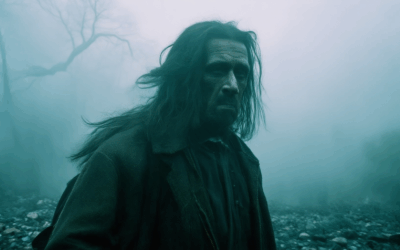The rapid advancements in technology have brought about remarkable innovations, yet they also raise profound ethical questions that demand careful consideration. Among these thought-provoking topics, the ethical dilemmas surrounding artificial intelligence, particularly as depicted in films like *The Fog*, have gained significant attention. From the moral choices faced by characters in fictional narratives to the real-world challenges of ensuring AI systems operate ethically, the complexities of navigating these issues are undeniable. As society continues to integrate AI into everyday life, from healthcare decisions to autonomous vehicle operations, the need to address ethical concerns becomes increasingly urgent. Understanding the ethical implications of AI is not just about ensuring technology aligns with human values—it’s about fostering trust, accountability, and fairness in an increasingly intelligent world. This exploration delves into the intricate moral challenges posed by AI, offering insights into how we might navigate them responsibly.

What Are the Ethical Dilemmas in *The Lorax*?
The Lorax raises several ethical dilemmas that resonate with readers, encouraging reflection on humanity’s relationship with nature and societal priorities. These dilemmas revolve around environmental stewardship, personal morality, and the consequences of unchecked ambition.1.
Environmental Destruction and Its Consequences
– The primary ethical issue in *The Lorax* centers on the environmental degradation caused by industrialization and human greed. The Once-Were Forests, now reduced to a barren wasteland, illustrate the devastating effects of deforestation and pollution. – The book highlights how human activities can irreversibly harm ecosystems, leading to ecological collapse. This raises questions about the responsibility of individuals and societies to protect the planet for future generations.2.
Moral Implications of Success and Materialism
– The story critiques the moral decay associated with unchecked success. Characters like the mayor and the businessmen pursue wealth and power at the expense of the environment and the well-being of others. – This raises ethical concerns about whether financial prosperity justifies destructive behavior and whether society should prioritize environmental sustainability over economic growth.3.
The Dangers of Unchecked Ambition
– Mayor McCloskey’s relentless pursuit of progress and his disregard for environmental concerns demonstrate the potential hazards of ambition. His actions reflect a broader societal tendency to prioritize development over ecological preservation. – This prompts reflection on whether ambition should be balanced with a sense of responsibility towards the planet and future generations.4.
Culpability and Attempts at Amends
– The Lorax, though initially complicit in the destruction, ultimately seeks to atone for his role in the tragedy. This raises questions about individual versus collective responsibility and whether it’s ever possible to undo the damage caused by past actions. – The story leaves readers pondering whether sufficient measures can be taken to reverse environmental damage and whether humanity can learn from its mistakes.These ethical dilemmas serve as a cautionary tale about the importance of balancing economic progress with environmental conservation. They encourage readers to consider their role in shaping the world and to advocate for sustainable practices that protect the planet for the long term.
What Were the Ethical Dilemmas That John Q Faced in This Movie?
- Choosing Between His Life and His Sons: John Q was forced to grapple with the difficult decision of whether to risk his own life to save his children. This created a profound moral conflict as he had to weigh the value of his own existence against his responsibility to protect his family.
- Financial Burden and Medical Expenses: The heavy financial strain of his wife’s medical bills added immense pressure. John Q struggled with the ethical choice of prioritizing his family’s financial stability over his wife’s treatment, which led to significant stress and guilt.
- Taking Hostages to Secure Funding: In a desperate attempt to secure funds for his wife’s treatment, John Q resorted to taking hostages at the hospital. This action raised serious ethical questions about the morality of his methods and the potential harm caused to innocent lives.
- Facing Societal Judgment and Consequences: After his actions, John Q faced severe legal and social repercussions. He had to confront the ethical implications of his decisions and the lasting impact on his reputation and relationships.

Examples of Ethical Dilemmas Causing Moral Distress
Moral distress arises in various contexts, particularly within professions that require high levels of responsibility and empathy. Here are some common scenarios that can lead to significant moral dilemmas:
- End-of-Life Treatment Choices : Healthcare professionals often face difficult decisions regarding when to withdraw life-sustaining treatments, especially when the patient’s wishes are unclear or conflicting with family expectations.
- Adequate Staffing Levels : Nurses and doctors may struggle with moral distress due to understaffing, which can compromise patient care and safety, leading to feelings of guilt and frustration.
- Value Conflicts : Professionals may encounter situations where their personal values clash with organizational policies or societal norms, such as refusing to participate in certain medical procedures they find unethical.
- Challenging Team Dynamics : Interpersonal conflicts or poor communication within a healthcare team can exacerbate moral distress, as differing beliefs about the best course of action can lead to tension and uncertainty.
- Duty vs. Safety Concerns : In high-stakes environments, professionals may grapple with whether to prioritize patient safety or adhere strictly to protocols, which can sometimes feel contradictory.
- Resource Allocation Decisions : During crises, such as natural disasters or pandemics, healthcare workers must make quick decisions about which patients receive limited resources, leading to feelings of guilt and moral ambiguity.
- Medical Mistakes Leading to Harm : When a healthcare error results in patient harm, professionals often experience profound guilt and moral distress, fearing repercussions and questioning their competence.
- Personal Values vs. Professional Duties : Certain roles may require actions that conflict with individual values, such as working in an environment that prioritizes cost efficiency over patient care, leading to internal conflict.
Moral distress is a complex emotional state that can profoundly affect individuals’ well-being and job performance. Understanding these dilemmas is crucial for fostering supportive environments where professionals can navigate these challenges effectively.

The Key Ethical Dilemmas in *The Fog*
The 1980 supernatural horror film *The Fog* directed by John Carpenter explores several profound ethical dilemmas that resonate with contemporary societal concerns. These dilemmas are woven into the film’s narrative, offering a chilling reflection on human nature, morality, and the consequences of unchecked ambition.### 1. Environmental Destruction and Corporate Greed One of the most pressing ethical issues in *The Fog* revolves around the destructive impact of industrial progress on the environment. The film depicts a small coastal town where a mysterious fog envelops the area, causing chaos and death. This fog is later revealed to be a manifestation of the town’s collective guilt for allowing a nearby oil rig to dump toxic waste into the ocean. The ethical dilemma here lies in the tension between economic growth driven by corporations and the irreversible harm caused to the environment and local communities. ### 2. Individual versus Community Interests The film also delves into the conflict between personal survival instincts and the greater good. As the fog spreads, residents are forced to make life-or-death decisions that often pit one person’s needs against the safety of others. This raises questions about the ethics of self-preservation versus the responsibility to protect the vulnerable. For example, some characters choose to isolate themselves rather than risk infecting others, highlighting the moral complexity of individualism versus collective action. ### 3. Moral Ambiguity in Leadership The film portrays a corrupt sheriff who initially dismisses the strange events as a hoax, only to later become a figure of fear and authority as the fog takes hold. This creates an ethical conundrum regarding leadership and accountability. The sheriff’s transformation from a trusted leader to a tyrannical figure raises questions about the responsibilities of power-holders during crises and whether they should prioritize public safety over their own interests. ### 4. The Consequences of Ignorance and Denial Another significant ethical issue in *The Fog* is the failure of the community to recognize the impending threat until it is too late. Many residents dismiss the strange occurrences as a hoax or attribute them to natural causes, delaying the realization that a genuine danger exists. This reluctance to confront reality underscores the moral failing of ignoring warning signs and the potential consequences of complacency. ### 5. The Nature of Evil and Human Behavior The film’s final act reveals that the fog is not just a physical entity but a manifestation of humanity’s darkest impulses. It becomes a symbol of greed, corruption, and the capacity for evil within individuals and society. This raises deeper philosophical questions about whether the fog represents an external force or simply a reflection of the inherent flaws present in human nature. ### Addressing These Issues Today These ethical dilemmas continue to resonate today, particularly in contexts like environmental policy, corporate responsibility, and disaster management. The film serves as a cautionary tale about the importance of vigilance, collective responsibility, and the need for ethical decision-making in the face of crisis. For more insights into *The Fog*’s themes and ethical explorations, visit [The Fog](https://the-fog.net/), a comprehensive resource dedicated to the film’s legacy and cultural impact.
The Main Ethical Dilemmas in The Fog
The 1980 supernatural horror film *The Fog* directed by John Carpenter presents several ethical dilemmas through its chilling narrative and atmospheric storytelling. These dilemmas revolve around the mysterious mist known as “The Fog,” its origins, and its impact on the small coastal town of Santa Barbara.1. **Origin and Purpose of The Fog** The primary ethical question revolves around the true nature of The Fog. While the townspeople initially perceive it as a natural phenomenon, the film gradually reveals that The Fog may be a sentient entity with malevolent intentions. This raises questions about whether it is humanity’s duty to understand and combat this force or to accept its presence as part of the natural order. The ethical debate centers on whether scientific curiosity or caution should prevail in the face of unknown threats.2. **Community Impact and Paranoia** The Fog’s presence instills fear and paranoia in the community, leading to divisions among the residents. Some view The Fog as a tourist attraction, boosting the local economy, while others fear for their lives. This conflict highlights the tension between economic benefit and individual safety, challenging viewers to consider whose interests should take precedence in such situations.3. **Scientific Curiosity vs. Community Safety** The film explores the ethical implications of scientific exploration. As characters attempt to uncover the secrets of The Fog, they risk exacerbating its power or inadvertently causing harm. This raises questions about the limits of human experimentation and whether the pursuit of knowledge justifies potential dangers to the public.4. **Humanity’s Place in Nature** The Fog’s intelligence and adaptability force characters to confront humanity’s role in the natural world. Should humans attempt to dominate or coexist with such forces? This theme challenges audiences to reflect on their own beliefs about technology, nature, and the environment.These ethical dilemmas are central to *The Fog*’s narrative, driving the story forward while prompting viewers to consider deeper philosophical questions about existence, responsibility, and the balance between progress and preservation.
The Ethical Dilemmas in The Fog
The Fog website delves deeply into the ethical complexities presented in the iconic 1980 horror film *The Fog* directed by John Carpenter. By examining the film’s themes through its characters and narrative, the website explores the moral gray areas that resonate long after the credits roll.1. **Themes of Isolation and Paranoia**: The film’s setting on an isolated coastal town during a mysterious fog creates a sense of tension. Ethical dilemmas arise as characters struggle between survival instincts and moral integrity. For instance, the protagonist’s decisions to protect loved ones at any cost can be seen as both necessary and morally ambiguous.2. **Moral Ambiguity in Leadership**: The website highlights how authority figures in the story often face conflicting responsibilities. Their actions, driven by fear or duty, raise questions about the ethics of leadership under extreme circumstances. This duality is a central theme that invites deeper reflection.3. **Survival vs. Morality**: One of the most significant ethical debates centers on whether certain actions, such as lying or sacrificing others, are justifiable in the name of survival. The website examines how characters navigate this moral crossroads, often leading to tragic consequences.4. **Exploration of Human Nature**: Through its characters, *The Fog* reveals the darker sides of human nature under stress. The website discusses how this exploration challenges viewers to reconsider their own values and how they would act in similar situations.5. **Cultural Impact and Legacy**: Beyond the film itself, the website explores how *The Fog* has influenced popular culture and sparked conversations about ethical decision-making. Its enduring popularity underscores the timeless relevance of its themes.By visiting [The Fog](https://the-fog.net/), fans can dive deeper into these ethical explorations and uncover the layers of meaning within the film’s haunting narrative.



0 Comments